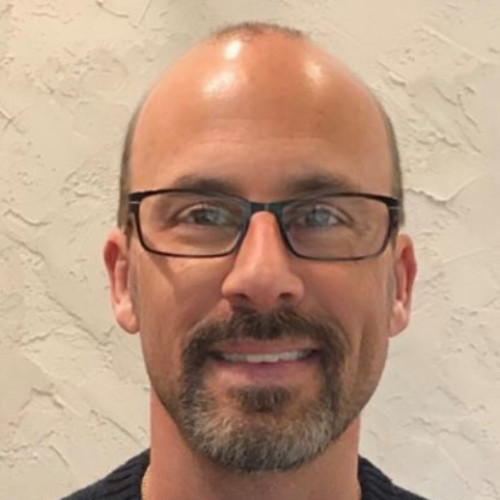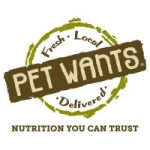

 Paul Kamm is the Vice President of Operations for Pet Wants, a national dog/cat nutrition, and wellness company. Paul has spent 35+ years in the pet industry, most recently as Vice President of Sales and Operations for Jack’s Pets, a regional full-line pet store chain.
Paul Kamm is the Vice President of Operations for Pet Wants, a national dog/cat nutrition, and wellness company. Paul has spent 35+ years in the pet industry, most recently as Vice President of Sales and Operations for Jack’s Pets, a regional full-line pet store chain.
Previous positions at Jack’s included Director of Operations and Director of E-Commerce. Paul was also President of Fishvet, an aquarium medication manufacturer, and a Buyer for Pet Care Superstores. He feels truly fortunate to have a career in a field where he can help pets live longer and healthier lives.
Connect with Paul on LinkedIn.
What You’ll Learn In This Episode
- About Pet Wants
- The growth strategy with Pet Wants as it eyes the 200th mark
- Qualities they look for in a Pet Wants franchisee
This transcript is machine transcribed by Sonix
TRANSCRIPT
Intro: [00:00:05] Coming to you live from the Business RadioX studio. It’s Franchise Marketing Radio brought to you by IDs, an award winning digital marketing agency that delivers integrated marketing solutions for franchisors, franchisees and franchise development teams. Learn why over 75 brands depend on ID’s team of dedicated marketers and client service professionals to deliver a strong ROI on their marketing investment. Go to Ids franchise marketing for a complimentary digital audit in consultation.
Lee Kantor: [00:00:44] Lee Kantor here another episode of Franchise Marketing Radio, and this is going to be a good one. Today on the show we have Paul Kamm with Pet Wants. Welcome, Paul.
Paul Kamm: [00:00:54] Thanks, Lee. Glad to be.
Lee Kantor: [00:00:55] Here. I’m excited to learn what you’re up to. Tell us a little bit about Pet Wants, how you serve in folks.
Paul Kamm: [00:01:01] Well, Pet Wants we’re a dog and cat nutrition and wellness company basically servicing. We sell dog and cat food treats, chews supplements to kind of take care of all the nutritional needs of anybody’s pet.
Lee Kantor: [00:01:15] Well, can you share a little bit about the back story? How did this come about?
Paul Kamm: [00:01:20] Yeah, it’s actually very interesting. Our founder back in 2010, I believe it was, could be wrong on the year she had a couple of pets, a couple of dogs that had some skin problems and she wasn’t happy with wanting to put him on medication. The vet wasn’t really helpful and she kind of realized looking at diet that that was going to make a difference. So she did a ton of research, spent months, probably a couple of years looking into pet nutrition, and it did a deep dive and actually came up with some formulations for food. She found a small manufacturer in northern Ohio that was willing to make like a £400 test batch and make the food. She comes back, she’s feeding it to her dog. She’s noticing a difference in her dog skin, their coat, the behavior, the dog just totally changes, kind of becomes the dog she wanted, not the dog she had. So she had to make a little more food. Some of her friends noticed the changes in the dogs. Hey, can we try some of that food? So then she gets £1,000 made, then she’s getting a couple thousand pounds made. And the manufacturer kind of said to her, What’s going on here? You got something? Something happening? So she opened a store in the Findlay Market down in Cincinnati. Findlay Market at the time is, I should say, one of the oldest farmer’s markets in in America. At the time it was a smaller it’s kind of a tourist destination now, but it was a small little market. And she opened a store to start kind of supplying the food to other pet owners and kind of build from there. I mean, it really is that grassroots beginning story that you think about a business starting from scratch. She started it from from totally from scratch from the first piece of dog food up.
Lee Kantor: [00:03:02] So then what was the thinking to franchise? How did that come about?
Paul Kamm: [00:03:07] Her commitment to nutrition and education and trying to help more pets across the country. She’s the sole operator. She’s an incredibly intelligent woman and business person. But franchising going national was not her forte. So she partnered with our parent company called Strategic Franchising, also based here in Ohio. So then you could take the model and franchise it out. She’s smart enough to understand that was not her expertise. Her expertise was in nutrition, the formulation and kind of the educational piece. So we’ve built off of that and move forward to take it franchised around the country.
Lee Kantor: [00:03:49] So when when a company chooses that route, what does that look like? How kind of what what state of the business do they have to be in where a firm like yours says, you know what, they have the good bones here and we’ll be able to really do what we do and get this out in front of lots more people than they could have individually.
Paul Kamm: [00:04:13] Well, I think that comes down to an individual. Every every company that’s going to franchise or a franchise or I should say, probably evaluates the potential differently. We saw and again, being those of us in the business here are pet people as well. So we understood the power of what she was doing, the coming at the issue with with dog and cat skin coat behavior issues from a nutritional standpoint. We saw the power in that and her whole focus on education, nutrition, getting the pet owner to understand what was really needed for their pet. That was real powerful to us. We kind of bought into that early and saw that this had a lot of potential. That and the fact if you look at the pet industry itself, it’s kind of a recession proof industry. It’s growing, it’s very strong. It just that everything came together and said this makes sense to take this. The next step.
Lee Kantor: [00:05:14] Now is the kind of pet as family member. Is that unique for America or is that happening around the world?
Paul Kamm: [00:05:23] It’s interesting. I think it’s more. More an American thing where we humanize the pet. But I don’t want to take away anything around the world. I mean, I understand. Like down in Brazil, a friend of mine runs a different franchise company. And down in Brazil, they groom their dogs every two weeks. I mean, it’s just there’s such a there’s such a focus on the dog has to look good. It’s kind of a status symbol. So depending on the industry, depending on the country, I should say, the the social norms are a little different where where kind of a pets are people in Brazil, it’s kind of pets are a status symbol. Other countries are going to be a little different. But what we’re a little unique that we treat them really like children. There are fur.
Lee Kantor: [00:06:14] Babies. Now, did the pandemic just accelerate this trend?
Paul Kamm: [00:06:20] I think so a bit. What really happened during the pandemic was people obviously being indoors and not socializing as much. The desire to have pets, to add some more love and fun companionship into the house kind of exploded. And really what what was noticed in industry, especially like millennials primarily, but also baby boomers and seniors, a lot of pet adoption where a lot of shelters had in the past, a lot of animals trying to find they really had to work hard to find homes. All of sudden the demand was there and people were adopting animals and really adding population into their homes.
Lee Kantor: [00:07:00] Now, as the pandemic wanes and the reality of, oh, I also travel and I have a life comes into play, how did that impact pet ownership?
Paul Kamm: [00:07:12] I don’t think that people who did a lot of traveling were necessarily the ones that jumped out and got the animals knowing that it was going to end eventually. You know, my my my daughter is an example. You know, she she ended up stepping up to get a pet for the exact same reason. I want some, some, some other love in the house. And she doesn’t travel for work. She’s back at work, but not traveling. So I don’t think there was a big impact in that regard to people who are traveling. I think a lot of responsible pet owners, again, these are their fur babies. They wanted to bring animals into the house because they were in the house and would be home not traveling.
Lee Kantor: [00:07:53] Now, when you were kind of building out the plan to franchise, what was kind of that avatar of that ideal franchise.
Paul Kamm: [00:08:02] Ideal franchisee for us really is kind of a couple of things. One, and the obvious one is obviously the pet lover. But that that’s that’s more of the minor part. Our business is really built around community based marketing, going out to farmer’s markets and events and educating people and making contact. So we were looking for people that had kind of a spirit to serve what we call values, the value, relational marketing or relationships. They want to connect with people, educate people, and help them provide the best nutrition and care for their pets. So it really is a people person is really the primary person we’re looking for and somebody who’s got a lot of drive, you know, you can’t open a business and people aren’t going to just come to your door. You have got to go find the business. So we’re looking for people that are outgoing as well.
Lee Kantor: [00:08:57] Now, is the plan kind of the world is your oyster at this point? You’re like just trying to get as many in America as you possibly can. Like, where are you at on the growth curve?
Paul Kamm: [00:09:07] Yeah, we feel we’re we’re not if we’re not crawling, we’re walking. We’re not running yet. We have about 150 territories now. We added 47 territories last year. We signed about 15 year to date, got about 20 more to go. We really look at the marketplace saying there could be 400 plus by 2028. So we’re we’re still in the in the first third of what we really feel we can do.
Lee Kantor: [00:09:38] And then you’re going like the whole country is kind of where you’re going or you’re targeting certain regions.
Paul Kamm: [00:09:45] We are going, yeah, coast to coast. Absolutely.
Lee Kantor: [00:09:48] So what do you need more of? How can we help you?
Paul Kamm: [00:09:54] You know, we’re looking for good quality people who are really want to dedicate to helping pets get get better, helping pet parents, so to speak. It’s a fun industry. I call it the love business. In all honesty, people don’t have to have pets. They want to have pets. Add that companionship, add security, whatever, to the house. So somebody that resonates with that, they understand that that pets are not have to it’s a want to. And relate to that typically a pet owner. Our our best franchisees really come out of our customer base because they’ve tried our foods. It’s all private label foods. We only make our own and they see that result with their dog and become kind of a. Kind of preach, preach to the rest of the people how good the food is.
Lee Kantor: [00:10:49] So what’s a day in the life look like for a franchisee? Are they spending their time in a store? They networking with veterinarians? Like what is the what is their day look like?
Paul Kamm: [00:11:01] The typical day is a little of both. I mean, we are event based marketing. Besides having a small retail footprint, we really go out into the marketplace versus expecting them to come to us. So a typical day we could be prepping for a market and doing a market or community networking, certainly going out to meet veterinarians and educating about our food and what makes our food different. Other businesses in the area, dog walkers, any kind of business that does things with pets and other businesses that are pet friendly. A lot of businesses let people bring in their pets. A lot of our owners do cross promotions with businesses like that. So it is really spending majority of the time in the community trying to build relationships up with people about our business and about their pets.
Lee Kantor: [00:11:52] So do they need a storefront like mandatory or is it something they can ease into a storefront?
Paul Kamm: [00:11:58] Well, I’m going to say they ease into it’s mandatory. But the way our agreement works is they come on board, they’re immediately going to launch after training. We have a whole onboarding and a whole training process that they go through to be ready to launch the business. We’re going to train people about pet nutrition. We’re going to train people about running a business. We’re going to train people about marketing. We have all these programs and processes in place, so it’s kind of cookie cutter helping them to understand how to run their business. But the start immediately is is event based marketing. We call it mobile. They have an e-commerce platform, so they have their own website so they can do business and e commerce platform for home delivery. They start the the launch, the mobile immediately. And within a year we expect them to open up a what we call a pet store. Our stores are slightly different than most people would think of a retail store as our stores really are about 1000 to 1200 square feet, 350 square feet of retail space on front. And the back side is kind of a services area for grooming, dog washing, that kind of thing. So we offer a service out of the out of the retail location as well. The front being small again, where nutrition supplements chews and treats. That’s all we carry in store online. We sell other items, but in store, it’s really those items that turn the most create the the highest demand items, the the items that turn the most for our owners so our owners can keep the inventory and the cash flowing rapidly instead of putting their money into inventory that sits.
Lee Kantor: [00:13:36] So if somebody wants to learn more, have a more substantive conversation with you or somebody on the team, what’s the website? What’s the best way to get to hold you guys.
Paul Kamm: [00:13:43] That want pet swanscombe? It’s really the easiest way to go to.
Lee Kantor: [00:13:48] Well, congratulations on all the success. You’re doing important work and we appreciate you.
Paul Kamm: [00:13:53] Well, thank you. I appreciate that as well.
Lee Kantor: [00:13:55] All right. This is Lee Kantor. We will see all next time on Franchise Marketing Radio.














